Speakers
Nikki Crowster
Mistress of Ceremonies (MC)
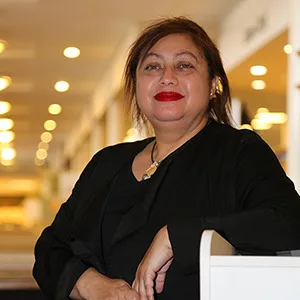
Nikki Crowster is the immediate past president of LIASA, holding the office from 2018-2021. As a member of the LIASA Executive (2014 to 2021 in various portfolios) she supported and led various advocacy efforts, notably that of Copyright Amendment including parliamentary representation.
Nikki Crowster is currently Director of Information Systems and Services at University of Cape Town (UCT) Libraries. She was the Project Lead for the Salvage and Recovery phases of the 2021 Cape Town/Jagger Library Fire disaster management response. The actions taken by her and the recovery team following this event exemplify Nikki’s commitment, passion, and dedication to South African library and information services (LIS).
Nikki embraces a values-driven culture which amplifies inclusivity and self-expression. Her core values include authenticity, speaking truth to power, self-responsibility, persistence, perseverance, passion, resilience, and commitment.
Uta Grothkopf
Title: Open Access — the Good, the Bad, and the Ugly
Abstract
Open Access (OA) publishing has become a core topic in scholarly communication. Funders, research organisations, and universities are developing OA policies that researchers need to know about and adhere to. The fact that models for OA implementation vary and continue to evolve makes it difficult to stay well informed.In this Informal Discussion, we will review the situation in OA publishing by looking at positive, but also negative aspects, along with a few issues that should be avoided altogether. We will also look at some OA journal publishing models and evaluate if and how they are suited to establish a collaborative, equitable, sustainable publishing landscape.
Biography
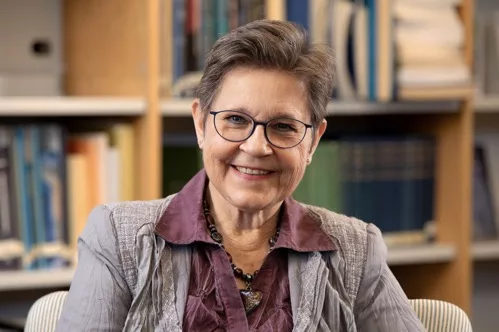
Uta Grothkopf is the Head of the Library and Information Centre at the European Southern Observatory (ESO), an inter-governmental research organization in astronomy. She develops and implements the mission of the Library and Information Centre, and ensures efficient access to information resources for ESO’s scientists and engineers.
Uta and her team monitor evolving scholarly communication tools and trends in publishing, such as the Open Access/Open Science movement and changes in copyright, in order to provide advice and guidance to ESO’s researchers.
Uta is a member of the IAU (International Astronomical Union) where she has been a Consultant to Commission on “Documentation and Astronomical Data” since 1994. She has been a speaker at many conferences and meetings, covering a variety of topics, including the evolving publishing landscape in the era of Open Access. She was actively involved in several LISA (Library and Information Services in Astronomy) conferences, and has been a lecturer at SWYA (Scientific Writing for Young Astronomers) Schools. In May 2019, Uta joined the Open Access Working Group of the journal Astronomy & Astrophysics (A&A), and has been a member of the S2O Community of Practice since October 2020.
Dr Nokuthula Mchunu
Title: Make African Research Discoverable: Towards a continental Open Science Vision
Abstract:
Open Science provides an opportunity to create an equitable and inclusive scholarly output ecosystem. The UNESCO recommendation on Open Science adopted unanimously by member states is crucial in achieving this. Open Access move has been at the heart of the Open Science, however, despite these new developments, gap in equitable access and contribution to knowledge had widen. So, then it is crucial to wonder is Open Access really Open? Although there has been advances in digitalization and the drive to equitable access to knowledge instead of providing solution, more challenges have appeared. African (global south) communities need to come together to determine what does open science and open access mean for them and the path to implementation. This discussion will focus on challenges out open access practices and howthe Africa Open Science Platform (AOSP) aims to provide co-ordination by positioning the African scientists at the cutting edge of data intensive science. This include creating opportunity through the development of efficiencies of scale, building critical mass through shared capacities, and amplifying impact through a commonality of purpose and voice through open science. One of these pillars is providing a platform tools and communities of practices in equitable models of scholarly communication and advancing a diversity of science communication strategies and stakeholders.
Biography
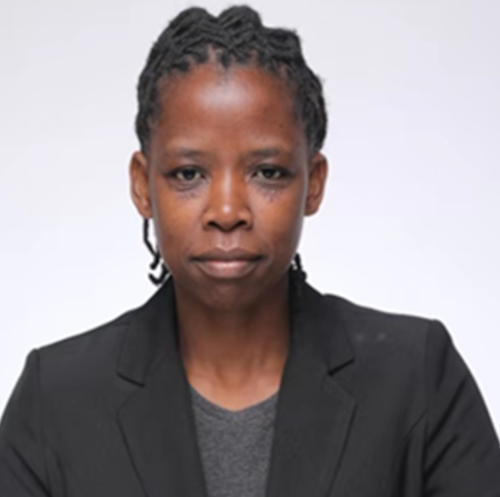
Dr Nokuthula Mchunu is the Deputy Director at the African Open Science Platform hosted by the National Research Foundation, South Africa. Dr Mchunu has a wealth of experience in academia outreach programmes, the popularisation of science, and STEM with local communities. She was senior Researcher from the Agricultural Research Council of South Africa in the Biotechnology Platform. She completed her doctoral degree in fungal genomics, was previously a senior scholar in the Department of Biotechnology of Durban University of Technology for more than 15 years. She has also served as a scientist in a number of international institutions including the University of Cincinnati (USA), Lund University (Sweden), Tianjin University, (China) and the Centre for Chemical Biology (Malaysia). She is the first recipient of the Young Scientist Programme between China and South Africa. Her research focused on Covid and pathogen surveillance in wastewater, fungal genetics, Cannabis and Africa legume genomics.
Glenn Truran
Title: How read and publish agreements facilitate the transition of SA’s research from behind a paywall to open access
Abstract
Subscription or paywalled scholarly publishing is losing ground as the dominant publishing model to various models of open access publishing because it is unfit for purpose, unaffordable and, worst of all, it limits the visibility of research that could benefit society. SANLiC has been instrumental in negotiating 14 read and publish agreements that have effectively transformed over 80% of South African research publishing venues from paywalled to open access publishing options. This was done by repurposing traditional read subscription expenditure. Authors do not have to pay anything. The result has been a dramatic shift by SA researchers from paywalled to open access publishing in the same venues
Biography
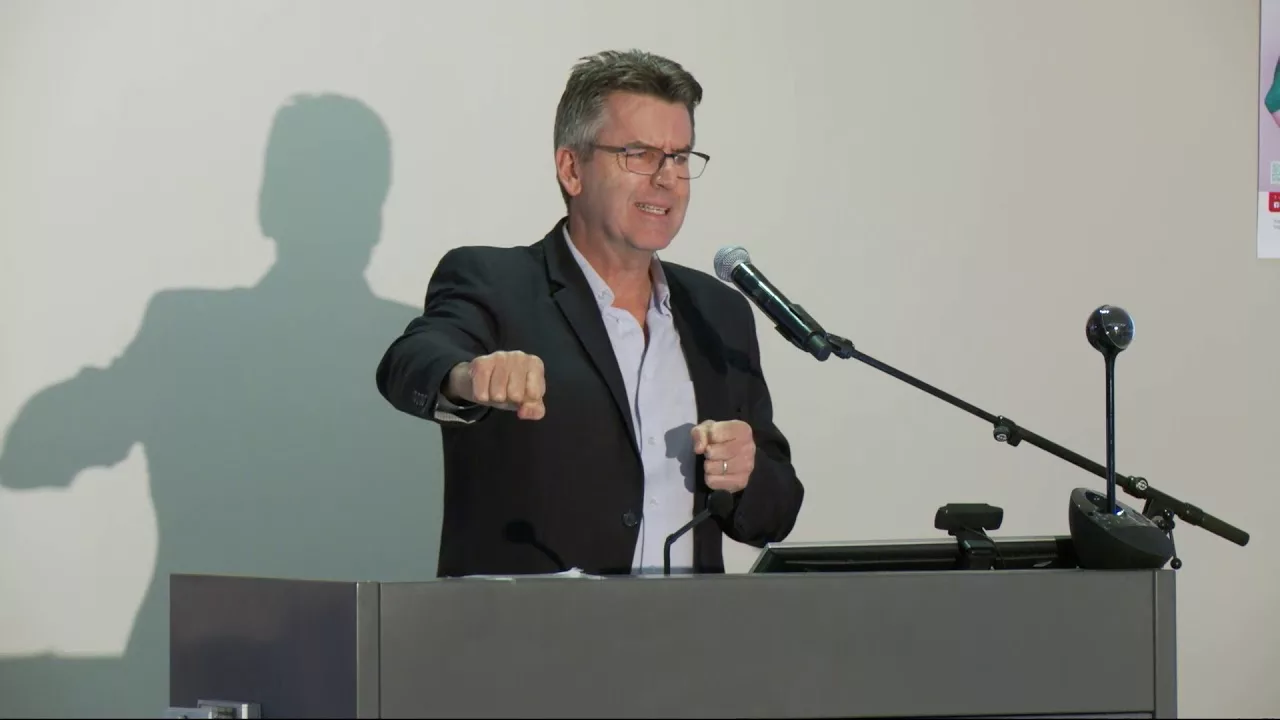
Glenn Truran is based in the SANLiC office in Cape Town. After graduating from the University of the Witwatersrand (Wits), he worked as an educator in South Africa and England. He has worked for poverty alleviation non-profit organisations for most of his career and has over 30 years’ experience at a managerial level. He has a BA and two post graduate diplomas from Wits, the first in education and the second in public policy and development administration. He also has an MBA from the University of Cape Town.
Dr Patiswa Zibane
Title: Open Research: Make Every Research Count
Abstract:
The presentation will explore the transformative impact of open research practices on the academic and scientific community. It will highlight the principles of open access, open data, and open peer review, emphasizing how these practices enhance transparency, reproducibility, and the overall integrity of research. It will further address the challenges faced in open-access publishing, such as compromised research integrity, the rise of paper mills, and retractions. This session will demonstrate how embracing open research can democratize knowledge, foster collaboration, and make every research endeavor count by showcasing successful examples and providing practical guidelines.
Biography
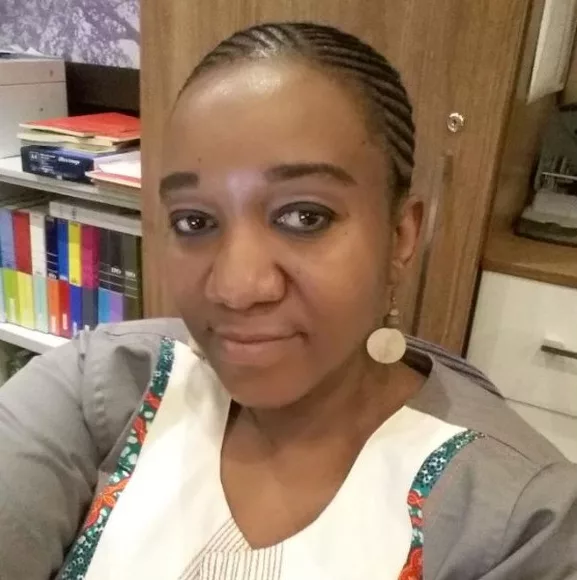
Patiswa Zibani is the Library Resources and Information Services Manager at King Abdullah University of Science and Technology (KAUST) in Saudi Arabia. She recently obtained her Ph.D. in Library and Information Science at the Durban University of Technology (DUT) in South Africa. Her experience in working with academic and research libraries spans over 20 years. She is an active researcher and published author. Her research interests are in research data management, research impact, evaluation, and repositories.
Jill Claassen & Sai Maharaj
Title: Accelerating the impact of African scholarship through an alternate open access publishing model
Abstract
Access to resources ensure that the knowledge economy continues to grow and expand. As a continent, Africa has access challenges, mainly due to the unaffordable cost of subscriptions to scholarly literature. Additionally, there is a pressing need to have access to scholarly content that is relevant and decolonised. Academic libraries have the opportunity to go beyond their traditional role of purchasing and disseminating scholarly literature, to provide open access library publishing that creates and disseminates scholarly literature that contributes to access to local content. The library publishing service, within an African context, affords this opportunity to then expand the global knowledge economy.
However, without a continent-wide publishing agenda, individual academic libraries face challenges in providing these services independently. To address the shortage of skills and technological infrastructure, the University of Cape Town Libraries, in collaboration with its Information and Communication Technology Services department, developed the African Platform for Open Scholarship (APOS). APOS, a diamond open access platform which is free to both the author and reader, was founded on the principles of social justice, inclusivity, and equity, aiming to build communities of practice among like-minded participants to advance African scholarship.
Currently, 10 other African institutions publish open journals on APOS. The African platform demonstrates that significant impact of this alternative open access publishing model is possible, which guarantees an increased rate in access to African scholarly content.
Biographies
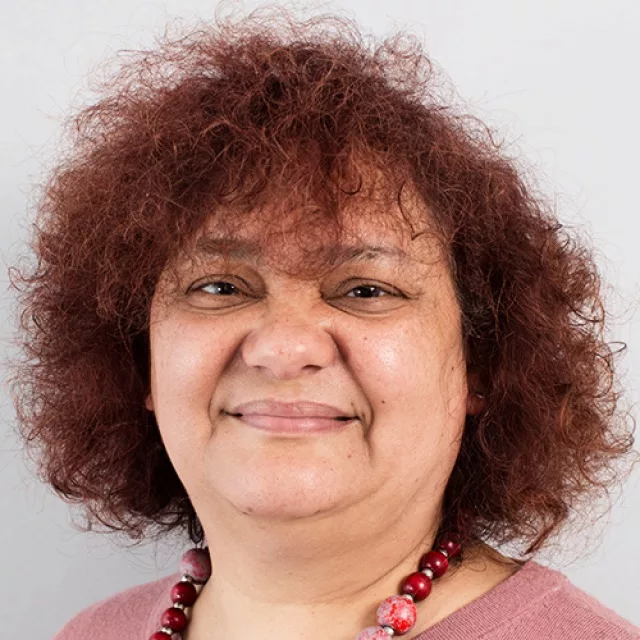
Jill Claassen has worked in academic libraries for the past 27 years and at University of Cape Town (UCT) Libraries since 2014 as the section manager of scholarly communication and research. One of the departments she oversees is scholarly communication and publishing, which implements UCT’s open-access policy by making UCT’s scholarship discoverable through the institutional repository, as well as the library publishing service that publishes open journals, and monographs and textbooks on the African Platform for Open Scholarship. UCT Press, which is the university’s press, is also located within scholarly communication and publishing. Jill is a registered PhD candidate in Library and Information Science and her research is on developing an open access publishing model for Africa.
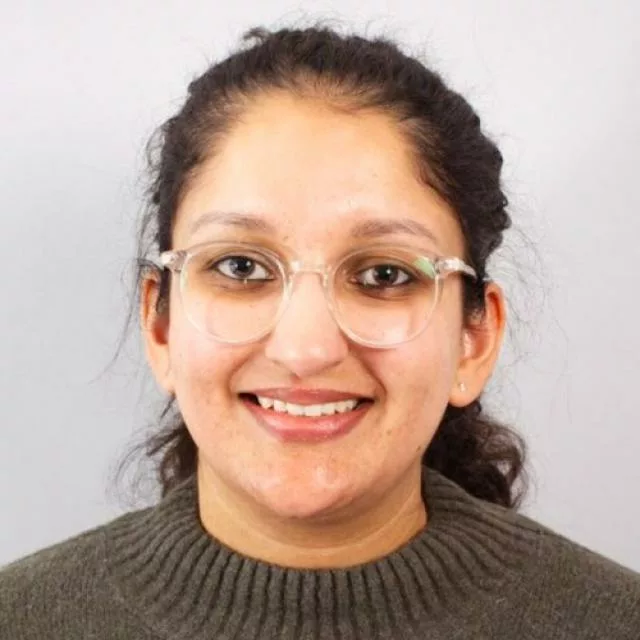
Sai Maharaj is a senior librarian in scholarly communication and publishing at the University of Cape Town (UCT) Libraries. Sai oversees the management of the institutional repository, OpenUCT and the African Platform for Open Scholarship (APOS). Sai is also the manager of UCT Press, the University’s Press, which is situated in UCT Libraries. Sai is a registered MPhil candidate in Library and Information Science and her research is on diamond open access practices in South African academic libraries.
Mark Allen & Soizick Lesteven
Title: Astronomy data services in the new landscape of national and international Open Science initiatives
Abstract
Astronomy has long been at the forefront of collaborative efforts for data sharing, driven by the scientific need to combine data from many different origins. The long-term, and active collaboration between astronomy journals, data centres, telescope archives and space agencies has led to relatively efficient connections between different services and tools for the benefit of the astronomy community. The Virtual Observatory standards provide a key element for interoperability, and astronomy is often seen as a good example for data sharing within a scientific discipline.
In recent years a new context has developed whereby national and international initiatives for Open Science are rapidly changing the global landscape for data sharing. Astronomy data sharing is being projected into this new context. Efforts are being made via various projects to integrate the Virtual Observatory into the wider interdisciplinary systems. This poses many challenges, and requires interfacing with these initiatives. For example, the case of the Strasbourg astronomical Data Centre (CDS) where we are now engaged with the French national “Recherche Data Gouv” ecosystem, and also with the European Open Science Cloud (EOSC). In this presentation we will highlight the opportunities, challenges and risks that we face to integrate astronomy services into these new systems.
Biographies
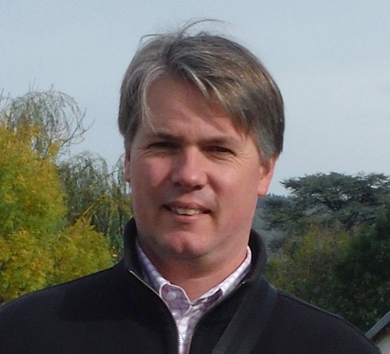
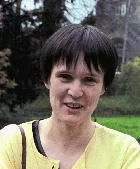
Johanna Kuhn
Title: The Open Access Transition – A Publisher’s Perspective
Abstract:
Open Science has become the mainstream way of publishing scientific research. At Springer Nature we know that open science is the future, and we have therefore championed the value and impact of Open Access (OA) for over 20 years. Springer Nature is committed to transforming into an OA organization and we are innovating to ensure equity of OA. Transformative agreements are an important aspect of the OA transition, increasing OA output in participating countries and supporting researchers worldwide. As an industry and an entire research community, we need to work together to reach a fully OA future.
Biography
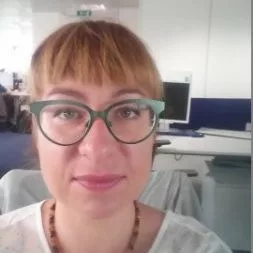
Having joined BioMed Central (part of Springer Nature) in 2008, Johanna’s core role is to support the local Springer Nature Licensing Teams in Eastern Europe, the Middle East, parts of Asia and Africa with her open access expertise, as the importance of Transformative Agreements is increasing. In addition, she is responsible for creating and maintaining institutional partnerships and increase awareness of open research at Springer Nature.
Dr Aletha de Witt
Title: Open Science Access in South Africa and Africa’s Astronomy Landscape
Abstract
This talk will explore South Africa’s initiatives to promote open science, focusing on the draft National Open Science Policy and its alignment with UNESCO’s recommendations. Highlighting developments in astronomy within South Africa, across the African continent, and globally, we will examine the good, the bad, and the ugly aspects of open access. The discussion will focus on the impact of open access on various aspects of astronomy, including researcher collaboration and productivity, scholarly publishing, information sciences, data sharing and interoperability, intellectual property and ethical considerations, and resource allocation and funding. We will address how open access supports research collaboration and data sharing while also considering the challenges related to intellectual property, data management, and resource allocation. This session aims to provide key considerations and promote discussion on the benefits and challenges of open access in astronomy.
Biography
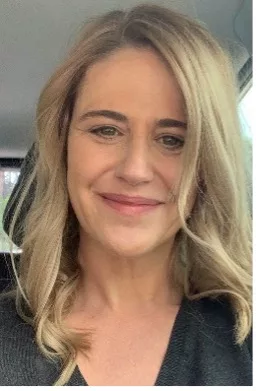
Aletha de Witt completed her doctoral thesis in Astrophysics in 2012, specialising in radio calibrator sources for the Square Kilometre Array (SKA) and Very Long Baseline Interferometry (VLBI) observations. Following her PhD, she undertook a post-doctoral position at the Hartebeesthoek Radio Astronomy Observatory (HartRAO) in South Africa. In 2013, she was appointed as Operations Astronomer at HartRAO, and joined the observatory’s management team by 2016. Since 2017, Aletha has led the Fundamental Astronomy Department at the HartRAO site, an integral facility of the South African Radio Astronomy Observatory (SARAO). In 2024, Aletha took on a new role as Director of Radio Astronomy Projects at the Department of Science and Innovation in South Africa.
Her primary research focus revolves around celestial reference frames (CRFs), with a keen emphasis on enhancing the Southern Hemisphere. Her contributions include her role as the principal investigator of the K-band (24 GHz) CRF project. Under her leadership, this project has secured over 2000 hours of observing time on the Very Long Baseline Array (VLBA) and has leveraged various VLBI instruments in South Africa, Australia, Spain, and Korea. Additionally, she has been a member of the International VLBI Service for Geodesy and Astrometry (IVS) Directing Board since 2009 and joined the Global Geodetic Observing System (GGOS) Governing Board in 2023. Additionally, she holds the position of Vice-President within the International Astronomical Union (IAU) Commission A1 on Astrometry and will take over as president in August 2024 . Her contributions extend to participation in the IAU Division A ICRF3 Working Group and her role within the current Multi-waveband International Celestial Reference Frame Working Group.
Aletha is also an active member of the IVS Committee on Education and Training. Her influence extends to the African VLBI Network (AVN), where she played a pivotal role as the South African Chair of the DARA (Development in Africa with Radio Astronomy), AVN Newton Fund Project from 2015 to 2020. She is also a member of the BRICS (Brazil, Russia, India, China and South Africa) Astronomy Open Access Working Group. Throughout her career, she has been at the forefront of developing, implementing, and coordinating various astrometric and geodetic VLBI programs, both in Africa and on the international stage. Her work stands as a testament to her unwavering commitment to advancing the fields of astrometry, geodesy and also radio astronomy.
Prof Peter Coles
Title: Open Access Publishing in Astrophysics
Abstract:
Over the past decade, the landscape of academic publishing has changed dramatically, with publishers moving from subscription-based models to “open access” in which papers are available to read free of charge. Many journals have made the decision to maintain revenue by charging authors for this, via so-called “Article Processing Charges” (APCs) which can run to $1000s, thereby closing the door on those without funds to pay. More recently, there have been moves to encourage researchers to publish using “Diamond” Open Access wherein papers are published without charge to the authors and without cost to the reader. In this talk I shall discuss the environment for Open Access Publishing in Astrophysics with reference to the Open Journal of Astrophysics (OJAp), which offers a not-for-profit service of this kind using an arXiv-overlay model. I also offer a possible vision of the future of truly “Open Access” publishing based on a global network of institutional and/or subject-based repositories.
Biography
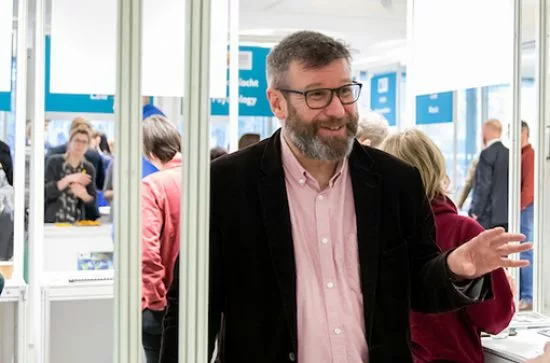
A theoretical astrophysicist, Peter’s research is in cosmology and the large-scale structure of the Universe. He obtained a doctorate from the Astronomy Centre at the University of Sussex in 1988. He held a number of positions in the School of Mathematical Sciences at what is now Queen Mary, University of London. He was awarded a SERC Advanced Fellowship in 1993 which he held for five years during which he was promoted to the position of Reader.
In 1998 Peter was appointed Professor of Astrophysics in the School of Physics & Astronomy at the University of Nottingham where he helped set up an Astronomy group. In 2007 he moved to a position as Professor of Theoretical Astrophysics in the School of Physics and Astronomy at Cardiff University. From February 2013 until the end of July 2016 he was Head of the School of Mathematical and Physical Sciences at the University of Sussex. In 2016 he returned to Cardiff in a part-time capacity split between the School of Physics & Astronomy and the Data Innovation Research Institute. In 2017 he moved to Ireland to take up his current position at Maynooth.
ProF Ian Glass
Title: A tour of the SAAO
Abstract:
A short talk and tour give the participants an overview of the 200 year history of the Observatory in Cape Town.
Biography
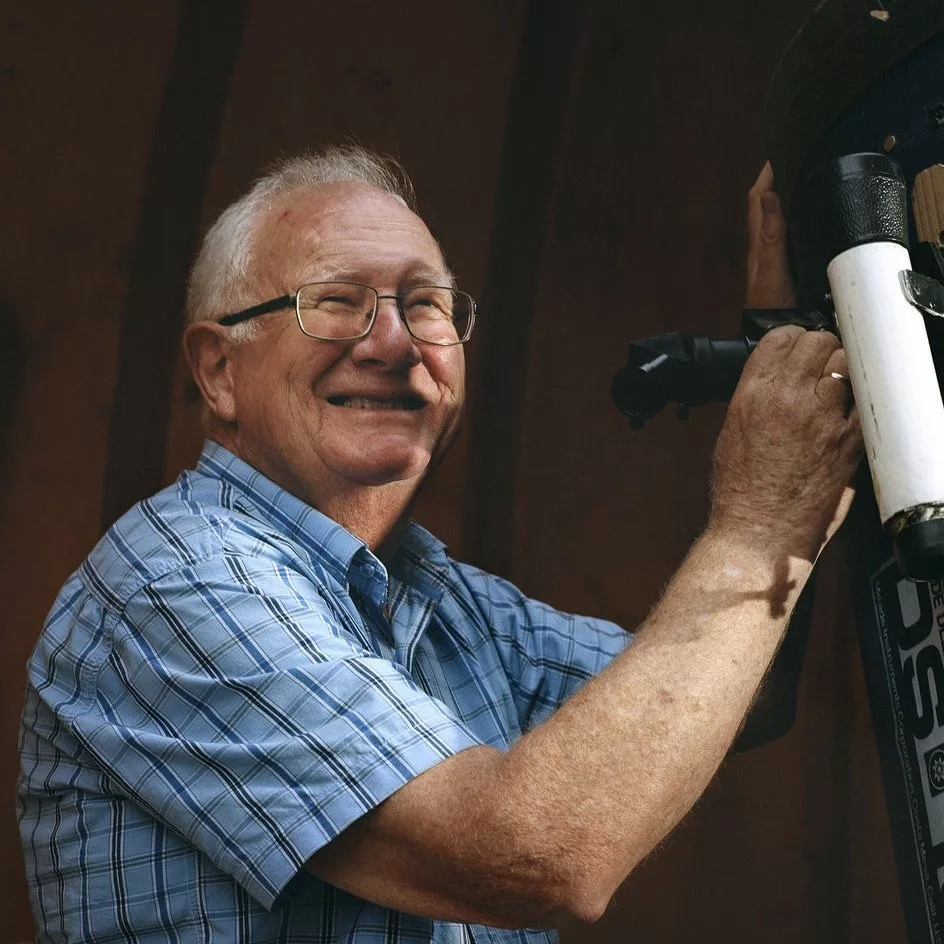
Dr Ian Glass studied physics at Trinity College, Dublin (BA) and at the Massachusetts Institute of Technology (MS,PhD), and had post-doctoral appointments at Caltech and the Royal Greenwich Observatory. For most of his career he was an observational astronomer at the South African Astronomical Observatory working at infrared wavelengths. In recent years Ian has concentrated on the history of astronomy and the conservation of heritage items at the South African Astronomical Observatory. He has published a succession of research papers and the following books: Victorian Telescope Makers: The Lives and Letters of Thomas and Howard Grubb (1997); Revolutionaries of the Cosmos: The Astrophysicists (2006), Proxima: The Nearest Star (Other than the Sun!) (2008), Nicolas-Louis de La Caille: Astronomer and Geodesist (2013), and The Royal Observatory at the Cape of Good Hope: History and Heritage (2015).